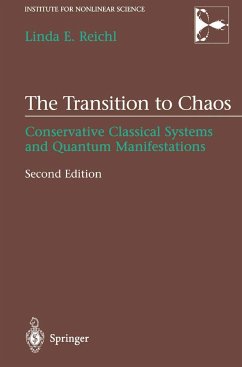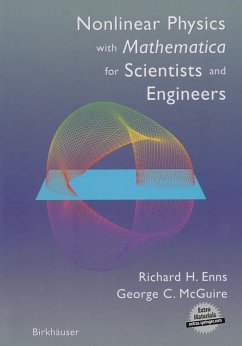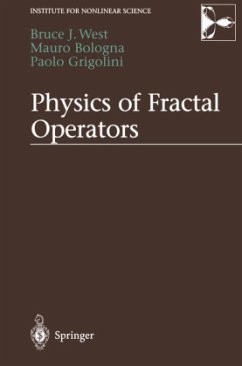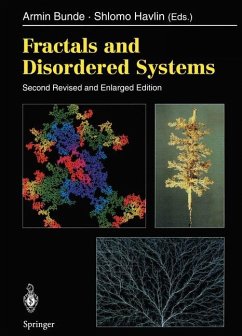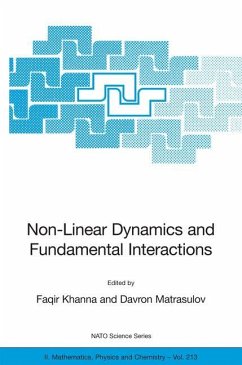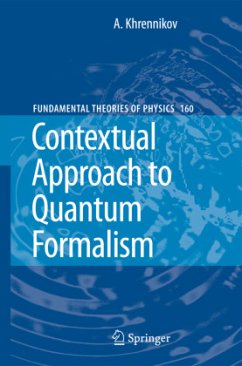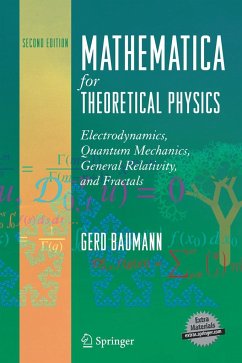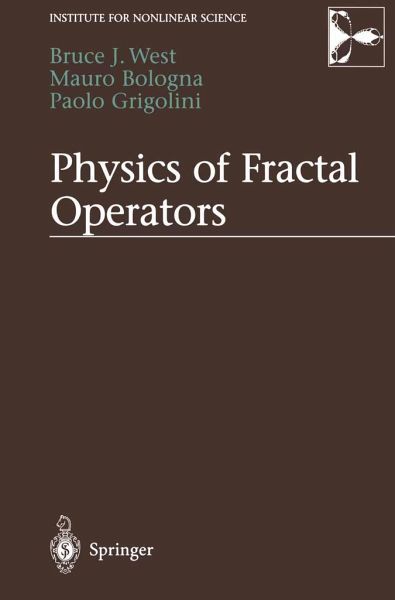
Physics of Fractal Operators
Versandkostenfrei!
Versandfertig in über 4 Wochen
52,99 €
inkl. MwSt.
Weitere Ausgaben:

PAYBACK Punkte
26 °P sammeln!
This text describes how fractal phenomena, both deterministic and random, change over time, using the fractional calculus. The intent is to identify those characteristics of complex physical phenomena that require fractional derivatives or fractional integrals to describe how the process changes over time. The discussion emphasizes the properties of physical phenomena whose evolution is best described using the fractional calculus, such as systems with long-range spatial interactions or long-time memory.In many cases, classic analytic function theory cannot serve for modeling complex phenomena; "Fractal Operators" shows how classes of less familiar functions, such as fractals, can serve as useful models in such cases. Because fractal functions, such as the Weierstrass function (long known not to have a derivative), do in fact have fractional derivatives, they can be cast as solutions to fractional differential equations. The traditional techniques for solving differential equations, including Fourier and Laplace transforms as well as Green's functions, can be generalized to fractional derivatives.Fractal Operators addresses a general strategy for understanding wave propagation through random media, the nonlinear response of complex materials, and the fluctuations of various forms of transport in heterogeneous materials. This strategy builds on traditional approaches and explains why the historical techniques fail as phenomena become more and more complicated.
In Chapter One we review the foundations of statistieal physies and frac tal functions. Our purpose is to demonstrate the limitations of Hamilton's equations of motion for providing a dynamical basis for the statistics of complex phenomena. The fractal functions are intended as possible models of certain complex phenomena; physical.systems that have long-time mem ory and/or long-range spatial interactions. Since fractal functions are non differentiable, those phenomena described by such functions do not have dif ferential equations of motion, but may have fractional-differential equations of motion. We argue that the traditional justification of statistieal mechan ics relies on aseparation between microscopic and macroscopie time scales. When this separation exists traditional statistieal physics results. When the microscopic time scales diverge and overlap with the macroscopie time scales, classieal statistieal mechanics is not applicable to the phenomenon described. In fact, itis shown that rather than the stochastic differential equations of Langevin describing such things as Brownian motion, we ob tain fractional differential equations driven by stochastic processes.





